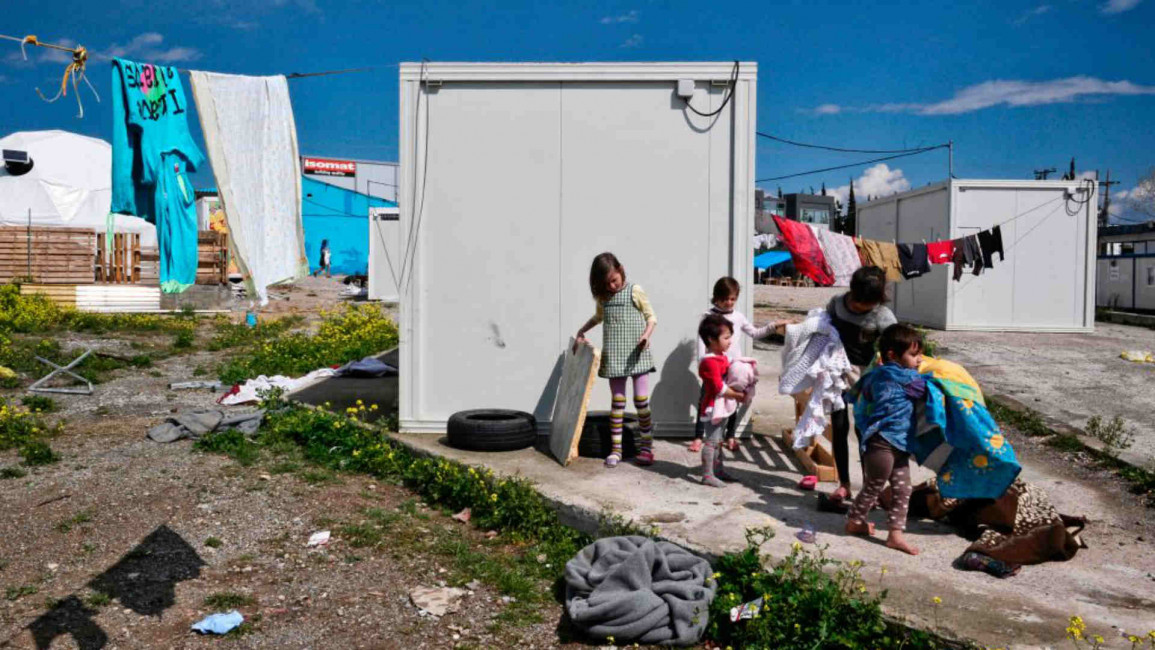
European nationalism and xenophobia are trampling on children's rights
First, it was Balkan countries that began sealing their borders. In March 2016, the EU followed with a collective response when they inked a deal to return all new arrivals to Turkey.
The result was cataclysmic; more than 21,300 children were suddenly stranded on Greek islands, waiting for completion of an excruciatingly long asylum process. More than 2,300 were estimated to be unaccompanied minors.
The right to seek asylum - a core principal in EU law - was abandoned. And yet, politicians hailed the EU/Turkey deal as a success, masking the harm that it's causing to thousands of children.
No rights for the child
Every EU member state has signed and ratified the UN Convention on the Rights of the Child.
This legislation stipulates that public and private institutions should consider the "best interests of the child," without discrimination, whenever one is involved.
The EU/Turkey deal blatantly violates this convention. Once the agreement took effect, refugees were crammed into parks, old army camps and warehouses. The quarters didn't meet minimum living standards, as concluded by the Greek Center for Disease Control.
 |
The irony is clear. European states, who blame smugglers worldwide, are empowering them within their own borders |  |
The situation has generated a deep sense of despair. Riots and feuds have erupted, sometimes between different groups of refugees. Children, caught in the middle, are often harmed. Police rarely intervene, and tend to use unnecessary force when they do.
The trauma of war, coupled with the hardships that refugees are facing in Greece has caused children as young as nine to self-harm or attempt suicide.
Aid workers also say that young boys are becoming increasingly aggressive, a clear symptom of their struggle to cope with mounting stress and hopelessness.
Some children have been transferred to a more comfortable environment, yet far more are dwelling in detention centers. This practice violates international law, which states that children should only be put in detention centers as a last resort, and for the shortest period.
But Human Rights Watch found that most refugee children are being detained for weeks and sometimes months. Some even suffer ill-treatment from police officers while being confined in unsanitary conditions.
| Read more: Desperate Syrians sell body organs in Lebanon to survive | |
These children should be released immediately. Like any European child, they have a right to protection; including safe living quarters, psycho-social support and education.
The problem is that Greece is not equipped to care for these children on its own. The country doesn't possess a comprehensive protection system nor enough suitable accommodation to house vulnerable children.
Evading responsibility
The rest of Europe must do more, but it doesn't appear they will.
Britain, for one, has accepted a mere 350 refugee children. The Home Office said that even this number is too high. They argue that upholding refugee rights, and subsequently the rights of the child, would convince others to cross the Mediterranean.
This argument is embarrassing. Children don't risk their lives to come to Europe based on the number of refugees that Britain takes in. They flee because of war, repression, famine, and abject poverty. But for much of Europe, these reasons aren't good enough to warrant protection.
 |
This argument is embarrassing. Children don't risk their lives to come to Europe based on the number of refugees that Britain takes in |  |
In 2015, European countries made a commitment to resettle 160,000 asylum seekers from overcrowded camps in Italy and Greece. Less than 10 percent have been relocated so far.
Hungary, Poland, and Austria refused to participate in the scheme. Other member states partook, but on a limited basis. The rest have betrayed their promise.
These dire circumstances have compelled adolescents to take matters into their own hands. With insufficient protection measures in Greece, and few legal channels to migrate elsewhere, children have turned to smugglers to escape their ordeal.
The irony is clear. European states, who blame smugglers worldwide, are empowering them within their own borders.
If that's to change, then member states must help each other ensure that asylum seekers have adequate protection. They could start by supporting Greece, which would only be part of the solution.
The rights of children will never be fully respected unless the right to asylum is honored as well. That means dismantling the EU/Turkey deal, and other similar agreements, which compromise the values that Europe claims to stand for.
Mat Nashed is a Lebanon-based journalist covering displacement and exile. Follow him on Twitter: @matnashed
Opinions expressed in this article remain those of the author and do not necessarily represent those of The New Arab, its editorial board or staff.




